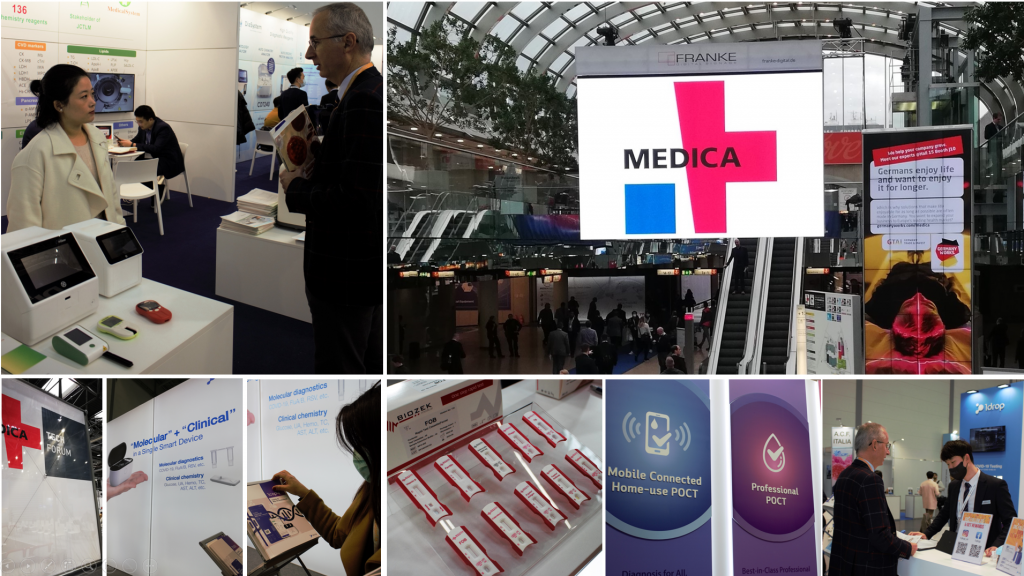
On the 17th of November we were visiting Medica 2022, the world’s leading medical trade fair, inDüsseldorf, meeting medical technology experts and companies from around the world.
Our main goal was to look for the latest innovations and trends in preventive health, more specifically those who can enable the early detection and prevention of non-communicable diseases, either at the point of care or at home.
We could certainly notice the rise of home diagnostics and proactive self-care devices. A noticeable shift in the use of wider home diagnostics following the COVID-19 pandemic that led not only to a huge demand for COVID-19 home testing kits, but global lockdown restrictions resulted in fewer people accessing traditional healthcare services and more acquiring a greater interest in managing their personal health and wellness. At-home testing kits, conveniently and affordably purchased over-the-counter, provide rapid results without the need for traditional referrals and, in many cases, laboratories, and can be used to detect a vast range of conditions, including infectious diseases, health issues, allergies, deficiencies, including Vitamin D deficiency as a major trend, as it’s a major public health problem worldwide in all age groups.
We also noticed that Point-of-care testing (POCT), or onsite testing, is rapidly emerging as a potential alternative to conventional laboratory-based diagnostic testing. POCT technologies hold enormous potential to improve health care delivery, by providing actionable information at the time and location of care. POCT allows diseases to be diagnosed at an early stage. Emerging POCT trends include the development of less invasive and more continuous testing, growth of miniaturized technologies, and the use of telemedicine for remote monitoring.
